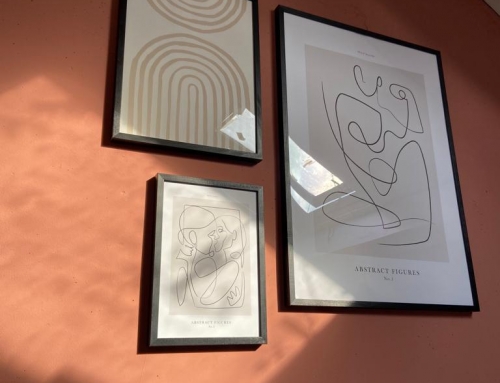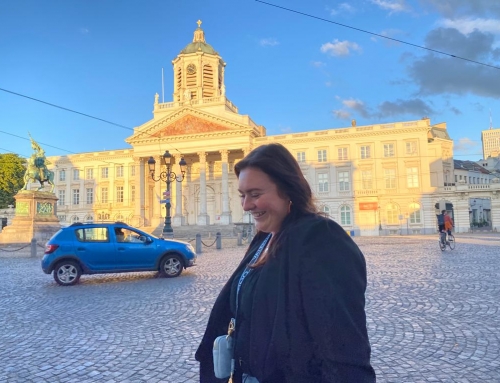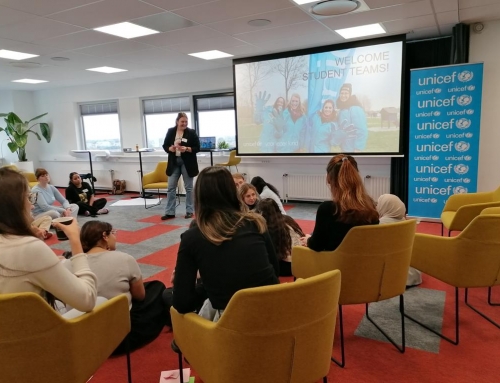Throughout my research process I have conducted quantitative research on the educational system, nieuwkomersgroepen, culture and integration within the Netherlands. From my own experiences and the research, I have done, I have been able to make conclusions on the educational approach within Dutch schools. To understand the perspectives of the stakeholders involved in my research I have decided to conduct qualitative research to support my findings.
Educational curriculum
Every school is allowed to give meaning to the curriculum in their own way but they have to meet certain criteria to ensure that students are fully educationally developed. The school often follows courses and trainings to gain more knowledge and advice on how to create the most positive learning curriculum for students. Especially in the area of ‘nieuwkomersgroepen’ where there is sometimes uncertainty on how to handle and teach these children in the best way. After working together with two schools in the Hague; Edith Stein College and Janligtharschool I came aware that they gave meaning to their curriculum through the HCO (The Hague Center for Educational Advice). Trainers, consultants, psychologists, remedial educationalists and other educational experts work within their organization. They support students, schools, teachers, parents, boards and others on a daily basis and encourage innovation. The goal: to get the most out of children, young people and education professionals. The HCO gives training, advice, research and coaching based on the latest insights about education and learning processes.
My conclusion from speaking to the HCO is that their perspective is that the current situation is the most positive for third culture students. Their belief is strong that the learning environment is already at its best and that there is not enough time and opportunity to change this. As I mentioned in my previous blogs, I believe that the education system, and also the HCO are very stuck in a system world and want to control the outcomes of situations. The HCO is not open minded to the opportunities which different approaches could have on the situation. This makes it difficult to change and shape the curriculum to enhance a cultural frame of reference.
Third culture kids
As mentioned in my previous blog, I conducted a survey at the Edith Stein College asking their international students how they are feeling about the current situation. Next to this, I also asked questions about their culture and how they feel this is being promoted at school. All respondents were enthusiastic about sharing their culture and find it important that the school becomes more international. At the moment, they feel that they are able to share their culture but that this can be improved within the school. This supports my research that culture can contribute to the positive learning environment of students. Speaking to older international students it also became clear to me that they believe the educational system in the Netherlands can be more international to allow students to feel like they belong.
Teachers
The teacher’s perspective is another important part as they give the curriculum to the students and experience first-hand whether or not the students are developing within the classroom. Teachers always have the best interest at heart of the students and therefore they also believe that the learning environment of students can always be improved. This also due to the fact that they see that students are not living up to their full potential. One of the teachers I talked to also had experience at teaching in an international school, she supported my theories and research that an international learning environment is much more beneficial for the integration of the child.
Parents
A child’s parent has an impact on the child’s education. They often decide which educational system the child will be attending and often want to be part of the educational development of their child. To gain the parents perspective I had an interview with two parents on their views of sense of belonging within the education system and how their children had integrated within the Netherlands. What I found an interesting insight is that they concluded that an international school puts more effort in keeping the parents involved then ‘nieuwkomersgroepen’. This is a pity as for the parents being in contact with the school allows them to make new contacts as well and therefore build upon their own community within the Netherlands. Concluding my knowledge on the parent’s perspective, they too see more opportunity for the learning of ‘nieuwkomersgroepen’ to be improved. They agree that a cultural frame of reference is important in allowing sense of belonging to take place and a positive integration process within the Netherlands.
Understanding the different perspectives of ‘nieuwkomersgroepen’ I can conclude that many see more opportunities within improving the approach of the education system. I can also link my previous research of Haberman’s to the perspective of the HCO as they are stuck in a system thinking world which is not allowing them to consider which opportunities will have a greater impact on third culture kids. This has allowed me to understand that we cannot change the curriculum of the education system as there are many different forces keeping the organization in a system world. Instead, to improve the approach of the education system we can add to their curriculum to make it better. Realizing these different perspectives it has shaped my own professional opinion which I will be reflecting on in my next blog.
References
‘Over the HCO’ (n.d.) Retrieved 11 May 2020





